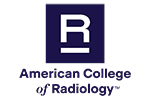What does a radiologist do?
Your Radiologist
Your radiologist is a medical doctor who specializes in diagnosing and treating multiple medical conditions using x-rays, computed tomography (CT), magnetic resonance imaging (MRI), nuclear medicine, positron emission tomography (PET) or ultrasound. Some of these imaging techniques use radiation and require training to understand radiation safety and protection. The person who operates the machine to acquire your images is often a radiology technologist. The doctor who reviews those images and decides what they show is a radiologist.:
Your radiologist is a doctor who has completed a radiology training program of at least four years. Many radiologists complete an additional 1-2 years of subspecialty training to become experts in certain aspects of radiology or interventional radiology. Radiologists are experts in interpreting a multitude of imaging exams and are highly skilled in understanding how to obtain the best quality imaging exam and what is the best test to obtain. Patients may not meet their radiologist in person, but we are a critical part of your healthcare team.
Your Radiologist Plays a Key Role in Your Healthcare By:
- Acting as an expert consultant to your referring physician (the doctor who sent you to the radiology department or clinic for testing) by aiding them in choosing the proper exam, interpreting the resulting medical images, and using test results to direct your care. Radiologists play a key role in healthcare; interpretation of a medical imaging exam is often how many critical diagnoses are made.
- Treating diseases by means of minimally invasive, image-guided therapeutic intervention (often done by a specialized radiologist called an interventional radiologist).
- Correlating medical image findings with other exams and tests.
- Recommending further appropriate exams or treatments when necessary and conferring with referring physicians.
- Directing radiologic technologists (personnel who operate the equipment) in the proper performance of quality exams.
Your Radiologist Has the Right Training, Knowledge, and Experience
When your referring doctors tell you they have reviewed your studies, what they usually mean is that they have reviewed the report created by the radiologist or gone over the imaging exam with your radiologist.
Radiologists are at the forefront of imaging technology, pioneering the use of CT, MRI, PET, and fusion imaging as well as minimally invasive procedures such as endovascular treatment of aneurysms and tumors, percutaneous biopsies, and radiation therapy.
Radiologists, board certified by the American Board of Radiology (for a medical doctor) or the American Osteopathic Board of Radiology (for an osteopathic doctor), indicate the highest level of training and demonstrate excellence in the field.
What You Should Know About Quality and Safety in Medical Imaging
Medically prescribed radiologic procedures such as CT, MRI, and PET should only be performed by appropriately trained and certified physicians under medically necessary circumstances.
Radiologists are medical doctors who have received at least four years of unique, specific, post-medical school training in radiation safety, the optimal performance of radiological procedures, and interpretation of medical images. Other medical specialties mandate far less imaging education, ranging from a few days to a maximum of 10 months. Use of medical imaging procedures by unqualified providers may needlessly expose you to radiation that could be unduly hazardous. It may also result in misdiagnosis or problems that are not diagnosed at all.
ACR Accreditation
If you are getting care in the United States, we suggest that any facility providing your medical imaging be accredited by the American College of Radiology (ACR). ACR accreditation ensures that the physicians supervising and interpreting your medical imaging meet stringent education and training standards. ACR accreditation also signifies that the imaging equipment is surveyed regularly by qualified medical physicists to ensure that it is functioning properly, and that the technologists administering the tests are certified. To locate a medical imaging or radiation oncology provider in your community, you can search the ACR-accredited facilities database.
Additional Information and Resources
This page was reviewed on May 01, 2023



